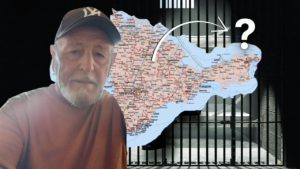Russians Have Been Concealing the Whereabouts of Kherson Military Pensioner Roman Ishchenko for Three Years
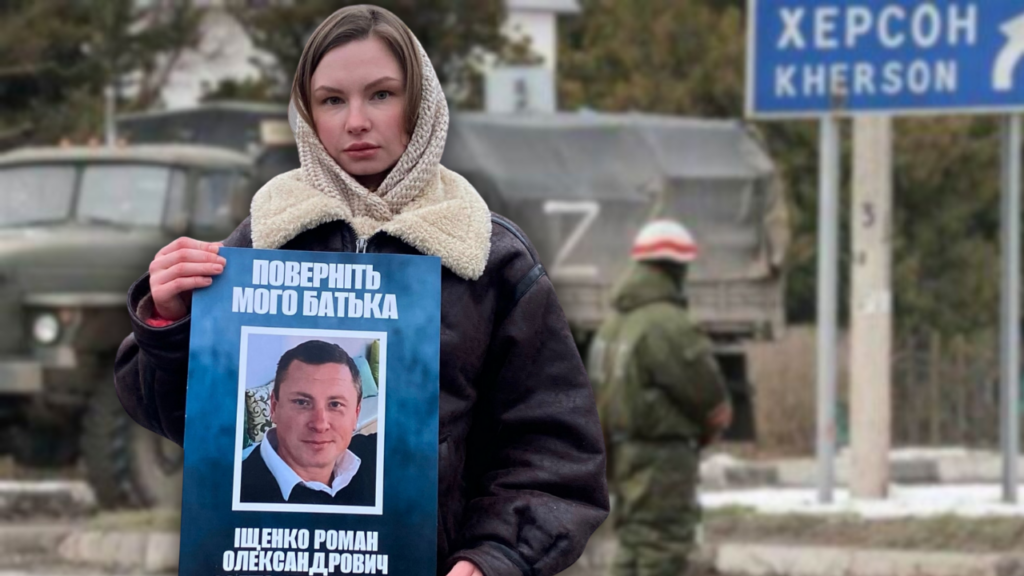
“Back in 2021, my parents kept telling us about a great war coming,” Oleksandra, Roman Ishchenko’s daughter, recalls. “There was a plan in place: who would take the car, who and where would go. Then Dad explained how everything would unfold, but he didn’t say anything about himself. I asked, “What about you? Will you come with us?” He was genuinely surprised and replied, “How can I go? I will stay in Kherson.””
This conversation between father and daughter became a reality just a year later. A month and a half after the onset of a full-scale invasion, the Russians abducted Ishchenko from his own home. For three years, Roman has remained incommunicado. The Russians have not brought any charges against him or disclosed his whereabouts.
“At first, it was hard to grasp that my dad could be abducted. But then, I didn’t know what it meant to deal with the Russians,” Oleksandra admits.
Everyone Was Taken to the Basement
Roman Ishchenko worked in the military courier service of the Armed Forces of Ukraine. In fact, it is a government courier service that delivers sensitive, often classified documents. He retired at the age of 45, which happened in early 2022. A few months later, Russia launched its full-scale invasion of Ukraine.
“That’s why he had little time to rest,” Oleksandra, Roman’s daughter, explains. “He was very kind to others, always trying to help everyone. After the start of the full-scale war, he delivered food to his neighbors and acquaintances. It was a time when everyone came together. In my opinion, my father found great delight in helping everyone in need.”
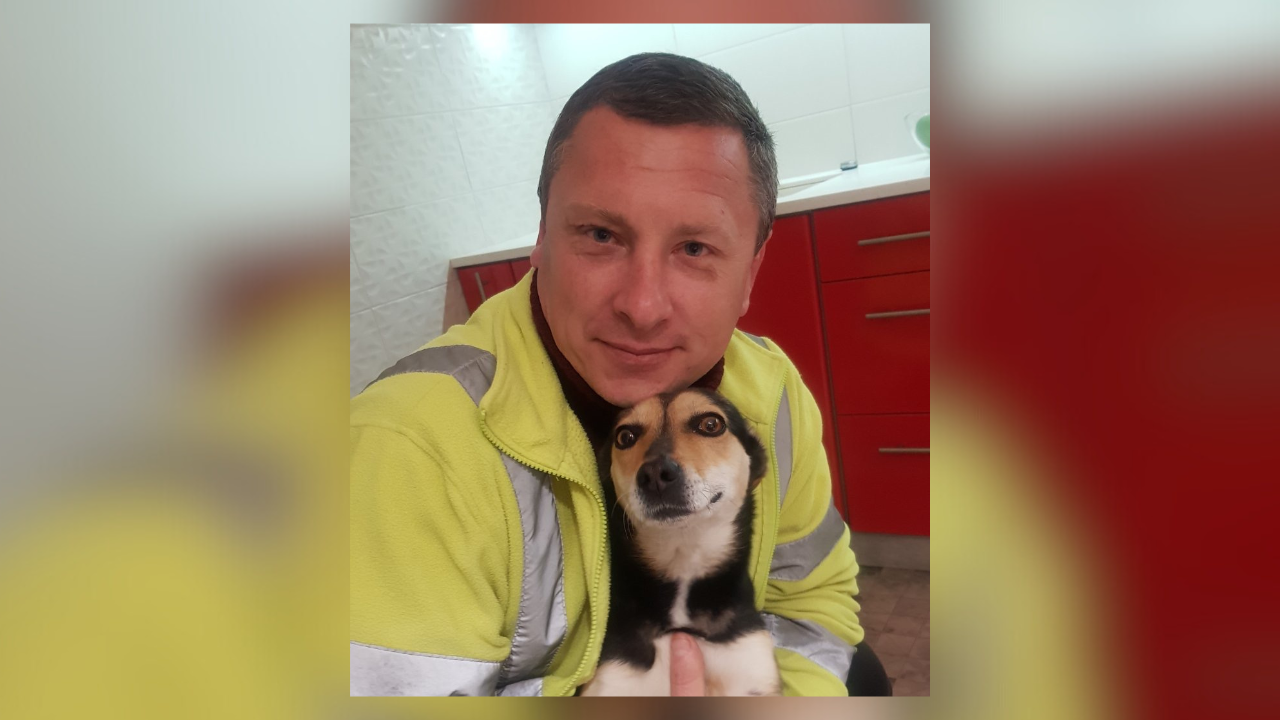
Roman Ishchenko, a civilian abducted in Kherson. Photo: Family archive.
When the full-scale war broke out, Oleksandra studied in Kyiv. On February 24, 2022, her mother called her and said she could hear explosions in Kherson. The family followed their long-prepared plan—Roman’s wife took the car and left the city.
“Dad remained in Kherson. My grandmother, grandfather, uncle, aunt, and another grandmother remained there, too. My mom, my cousin, and her children were the ones who left,” Oleksandra Ishchenko shares.
The occupiers rapidly advanced through the Kherson region. By early March, the Armed Forces of Ukraine lost control over Kherson. The family constantly kept in touch, so when Roman stopped responding to messages in mid-April, his wife and daughter began to worry.
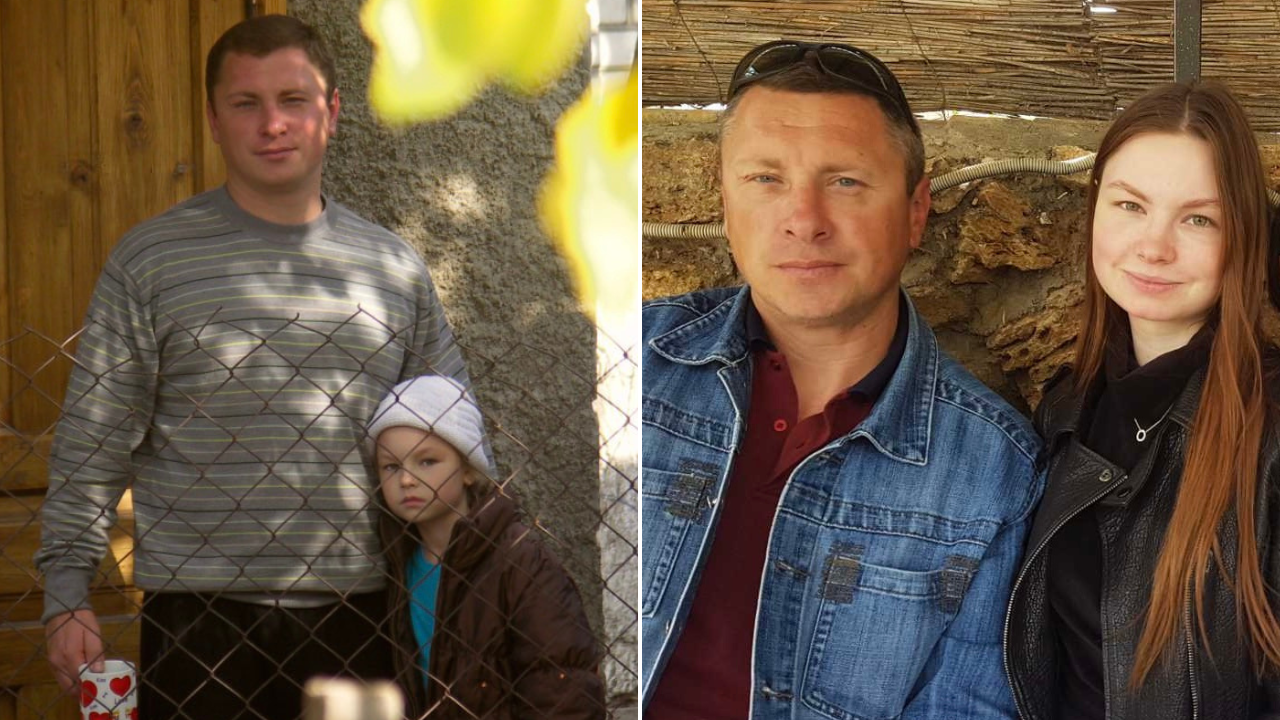
Roman Ishchenko with his daughter Oleksandra. Photo: Family archive
“At that time, I came to my mother, who stayed in Portugal, to support her. I clearly remember that day. I was studying in my room, and my mom came in, her face completely pale. Knowing that everyone in Kherson was taken to the basement, I immediately realized what had happened. “Is dad in captivity?” I asked. She replied, “Yes,”” Oleksandra recalls.
Special Detention Operation
Roman Ishchenko’s mother was a witness to his abduction. This happened on April 19, 2022.
“At around 5 a.m., the Russians arrived. We still don’t know who they were—maybe the FSB or military personnel. Grandma was terrified. They pointed weapons at her and Dad, but everything happened relatively calmly. Dad merely went out and surrendered to them. I think he decided it would be better because there were many more of them,” Oleksandra shares.
Four jeeps with seven armed men arrived at the Ishchenko family’s house that day. Six wore military uniforms and balaclavas, and one was in civilian clothes. They searched the house and drove Roman away to an unknown location. At the same time, the Russians carried out a similar search at Ishchenko’s parents’ house.
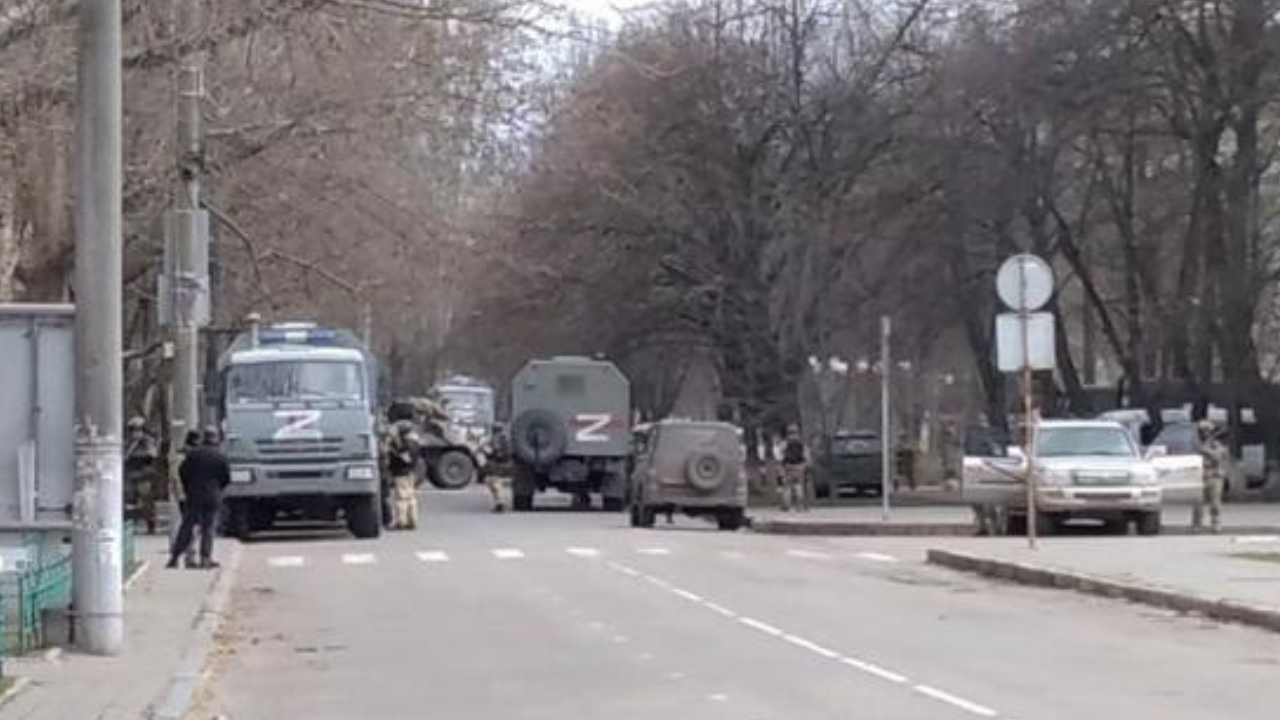
Russian military equipment on the streets of Kherson. Illustrative photo. Source: report.if.ua
After Roman’s detention, his mother went to the occupation commandant’s office.
“Grandma was scared to go there, but I practically forced her to do it because it was the only way to find out anything. At first, she went there every day, then every other day. However, they never told her anything,” Oleksandra recollects.
At the same time, Roman’s wife and daughter reported the abduction to all possible Ukrainian authorities.
“By the way, at that time, Ms. Vereshchuk [Iryna Vereshchuk was the Minister for Reintegration of Temporarily Occupied Territories of Ukraine until September 5, 2024—MIHR] was responding to private messages on her Facebook. I think it was her assistant replying, but in any case, she wrote that they had information about my father’s detention. That comforted me at the time.”
“Later, I started writing to Russia, their Ministry of Defense, the pre-trial detention centers, prisons, and other authorities. They rarely respond, and if they do, they state that no such a person has been detained,” Oleksandra Ishchenko admits.
The Only Information in Three Years
The Russians very rarely provide families of prisoners of war and civilians with information about where their loved ones are being held. Often, detainees are deprived of communication with their families to use psychological pressure to force them to sign confessions for crimes they did not commit.
Sometimes, families find information about their relatives on Russian Telegram channels, which is a challenging experience.
“I’m lucky my mom and I are together in this search. We have divided our roles. Mom is searching for information through Telegram channels, looking for Dad in videos, and contacting the families of other abductees. I correspond with Russia, make inquiries with our authorities, and communicate with lawyers. At first, I also watched all the videos and photos, but it’s tough—there’s no telling what you might see. That’s why I’m very grateful to my mom for doing this,” Oleksandra admits.
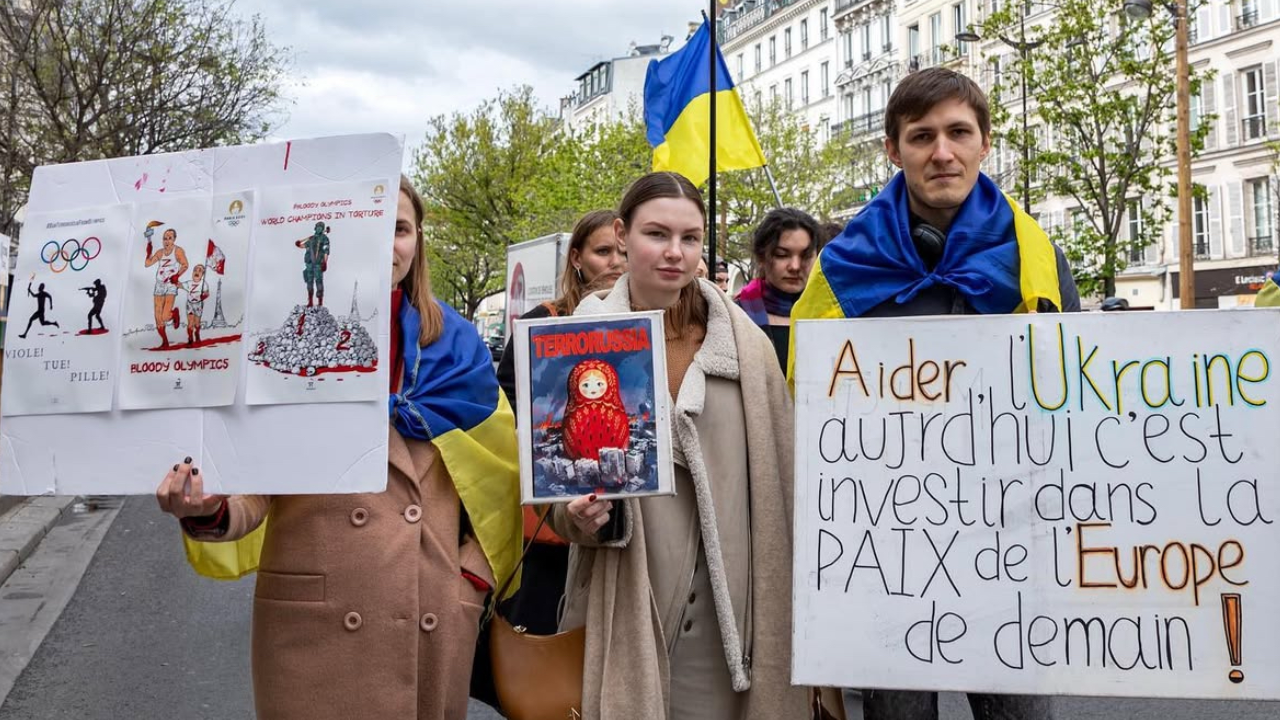
Oleksandra Ishchenko at a rally in support of Ukraine. France. Photo: Family archive. at a rally in support of Ukraine. France. Photo: Family archive.
In early 2025, a prisoner returned from captivity and later contacted the Ishchenko family, telling them that he had seen Roman.
“I’m still not sure it was my father because they all look alike, with the same haircuts, wearing the same clothes, all thin and exhausted. But I still appreciate people who reach out to the families. It’s incredibly valuable. In fact, it’s the only information we’ve had in three years. At least now we have something to start with,” Roman’s daughter explains.
“I’ve already filed many appeals to the Russian Federation and passed this information to our authorities. But that man saw my father at the end of 2023. So, I am unaware if he’s still there, as Ukrainian prisoners are constantly being relocated,” Oleksandra explains.
Oleksandra Ishchenko shares that she often thinks about her father and sometimes tries to connect with him spiritually, sending her energy so that he can endure all the trials of Russian captivity.
“Dad hasn’t seen me for almost three years, during which I’ve changed a lot and become an adult. I think he’ll be amazed when he sees me. When he returns, it will be a completely new stage in our relationship. I believe we’ll build even stronger bonds,” the girl is convinced.
Since February 24, 2022, the Media Initiative for Human Rights has identified at least 1,863 civilians abducted by Russians in the occupied territories of Ukraine. In the Kherson region, the occupiers illegally detained at least 462 people, including 174 who were captured in Kherson. The number of abductees may be many times higher.
Some of these people are held in Russian prisons without any legal status. No charges have been brought against them, but they continue to be kept in colonies, detention centers, and prisons in Russia for years. These actions by Russia violate the Geneva Conventions and should be investigated as crimes against humanity.
This article was published with the support of the European Endowment for Democracy (EED). Its content does not necessarily reflect the official position of the EED. The information or views expressed in this article are solely the responsibility of its authors.




